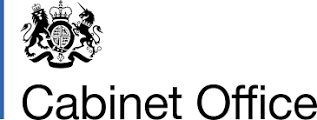HISTORIC PRESS RELEASE : Brown and Hewitt call on EU to lead the way in the Doha Development Agenda [May 2004]
The press release issued by HM Treasury on 19 May 2004.
Chancellor of the Exchequer Gordon Brown and Secretary of State for Trade and Industry Patricia Hewitt today called on the EU to lead progress in removing barriers to trade, and set out the full costs of current protectionism.
In a paper launched today, ‘Trade and the Global Economy: the role of international trade in productivity, economic reform and growth’, the Treasury and DTI estimated that the world economy is losing $500 billion of income each year as a result of continuing barriers to trade. Welcoming Commissioner Lamy’s recent proposals to put all EU export subsidies on the table for negotiation, Gordon Brown and Patricia Hewitt called on the Commission to go further. The EU should agree to significant further agricultural reform so that border protection is substantially reduced and export subsidies are no longer an issue for world trade by 2010 and to reduce all agricultural tariff peaks towards the maximum level for non-agricultural products.
The paper highlights the waste of the Common Agricultural Policy (CAP), which costs taxpayers within Europe 50 billion Euros per year, plus a further 50 billion Euros in artificially high food prices, the equivalent of over £800 every year for an average family of four. Whilst locking developing countries out of the international trading system, the CAP also fails to deliver on its core objectives, as EU farm incomes continue their steady relative decline and Europe’s poorest households face higher food prices.
Gordon Brown said he would make clear at this weekend’s G7 talks in New York that continued protectionism risks putting global economic recovery at risk whilst jeopardising the growth prospects of many poorer countries:
“We cannot proclaim ourselves supporters of development while preventing developing countries from selling us the products they can produce most efficiently. Protection is highest in agriculture and labour intensive goods – precisely those areas in which developing countries are most competitive. Reducing barriers to trade in agriculture could benefit developing countries by $240 billion a year – more than three times as much as current annual aid flows.”
Alongside real progress on reducing agricultural trade barriers in developed countries Gordon Brown and Patricia Hewitt suggested that developing countries need to design their own trade reform in a careful and sequenced way to be integrated into their own development and poverty reduction strategies. They also proposed supporting this by additional aid flows to ease capacity constraints, help capture the benefits of trade and manage change.
Speaking about the potential benefits of removing existing barriers, Patricia Hewitt said:
“We know from our own experience in Europe that countries that trade together also grow together. Following Pascal Lamy’s recent letter to WTO Members, we now have a opportunity to get the Doha Development Agenda back on track. Let’s all redouble our efforts to make the progress we need before this window closes in July.”



